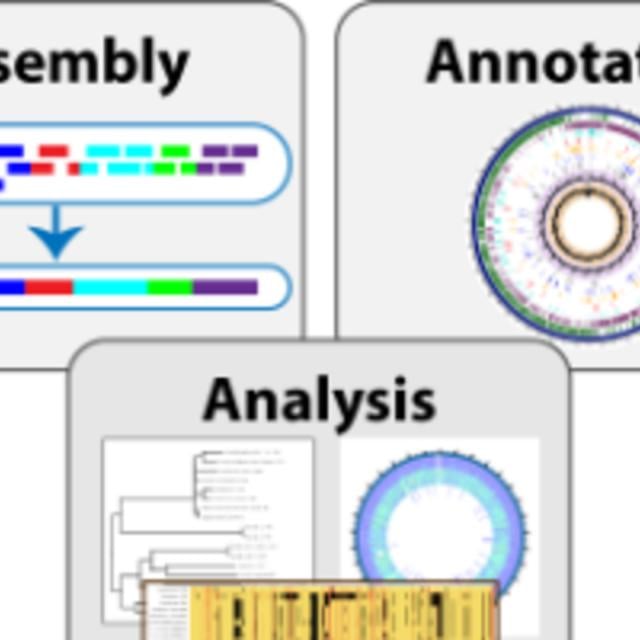MOOC List is learner-supported. When you buy through links on our site, we may earn an affiliate commission.

MOOC List is learner-supported. When you buy through links on our site, we may earn an affiliate commission.
PATRIC also provides a private workspace where users can upload and analyze their own data.
Course participants will gain skills needed to do comparative analysis of bacterial genomes, starting with raw sequence data.The lessons in the first module cover genome assembly, annotation, phylogenetic tree construction, and protein family / proteome comparisons. Each lesson builds on the previous, creating a complete baseline analysis workflow.
Syllabus
WEEK 1
Introduction
This lesson provides an introduction to PATRIC, the PathoSystems Resource Integration Center, a Bioinformatics Resource Center dedicated to supporting bacterial research. PATRIC provides comprehensive bacterial genomic data with integrated analysis tools and visualizations. PATRIC also provides a private workspace where users can upload and analyze their own data. PATRIC will serve as the platform for the analysis methods covered in this module.
WEEK 2
Assembly
This lesson provides step-by-step instructions for assembling a genome from a set of bacterial sequence reads using the PATRIC Genome Assembly Service. Exercises are included to enhance comprehension and build proficiency in using the assembly process.
WEEK 3
Annotation
This lesson provides step-by-step instructions for annotating a genome from contigs using the PATRIC Genome Annotation Service. Exercises are included to enhance comprehension and build proficiency in using the annotation process.
WEEK 4
Comprehensive Genome Analysis
This lesson provides step-by-step instructions for assembling, annotating, and performing an automated analysis of a genome from a set of bacterial sequence reads using the PATRIC Comprehensive Genome Analysis Service. Exercises are included to enhance comprehension and build proficiency in using the service.
WEEK 5
Codon-Based Phyogenetic Trees
This lesson provides step-by-step instructions for generating a codon-based phylogentic tree from a set of genomes using the PATRIC Codon Tree Service. Exercises are included to enhance comprehension and build proficiency in using the service.
WEEK 6
Similar Genome Finder
This lesson provides step-by-step instructions for finding genomes (and associated taxonomy) in PATRIC similar to your genome or sequences using the Similar Genome Finder Service. Exercises are included to enhance comprehension and build proficiency in using the service.
WEEK 7
Protein Family Sorter
This lesson provides step-by-step instructions for using the PATRIC Protein Family Sorter to compare presence, absence, and counts of proteins in protein families across a set of genomes. Exercises are included to enhance comprehension and build proficiency in using the tool.
WEEK 8
Proteome Comparison
This lesson provides step-by-step instructions for using the PATRIC Proteome Comparison Service to compare a set of genomes against a reference genome, feature group, or FASTA file. Exercises are included to enhance comprehension and build proficiency in using the tool.
MOOC List is learner-supported. When you buy through links on our site, we may earn an affiliate commission.
MOOC List is learner-supported. When you buy through links on our site, we may earn an affiliate commission.
